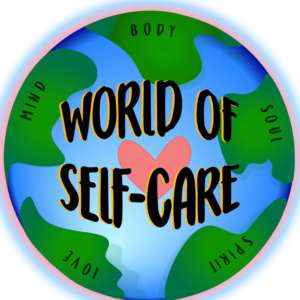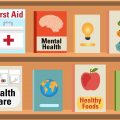In health care, self-care is any necessary human regulatory function which is under individual control, deliberate and self-initiated; or as described in the 6th edition of Concepts of Practice in Nursing: the “practice of activities that an individual initiates and performs on their own behalf in maintaining life, health, and well-being.”
Self-care and health care providers can be considered to be opposing ends on a health-related continuum or a complex relationship. For example, there is an expectation for nurses to act as supporters and facilitators to improve a patient’s health in an ongoing manner long after a medical event.
In modern medicine, preventive medicine aligns most closely with self-care. A lack of adherence to medical advice or the onset of a mental disorder can make self-care difficult. Self-care is seen as a partial solution to the global rise in health care costs placed on governments. Self-care is considered to be a fundamental pillar of health and social care, and is an essential component of a modern health care systems governed by regulations and statutes.
Self-care is considered a primary form of care for patients with self-managed chronic illness. Self-management education complements traditional patient education in primary care to increase the quality of life for patients with chronic conditions. Self-care is a continuous learning process. In philosophy, self-care refers to the care and cultivation of self in a comprehensive sense, focusing in particular on the soul and the knowledge of self.
Types of Self-Care
Physical Self-Care
You need to take care of your body if you want it to run efficiently. Keep in mind that there’s a strong connection between your body and your mind. When your caring for your body, you’ll think and feel better too. Physical self-care includes how you’re fueling your body, how much sleep you’re getting, how much physical activity you are doing, and how well you’re caring for your physical needs. Attending appointments, taking medication as prescribed, and managing your health are all part of good physical self-care.
Mental Self-Care
The way you think and the things that you’re filling your mind with greatly influence your psychological well-being. Mental self-care includes doing things that keep your mind sharp, like puzzles, or learning about a subject that fascinates you. You might find reading books or watching movies that inspire you fuels your mind. Mental self-care also involves doing things that help you stay mentally healthy. Practicing self-compassion and acceptance, for example, helps you maintain a healthier inner dialogue.
Social Self-Care
Socialization is key to self-care. But, often, it’s hard to make time for friends and it’s easy to neglect your relationships when life gets busy. Close connections are important to your well-being. The best way to cultivate and maintain close relationships is to put time and energy into building your relationships with others. There isn’t a certain number of hours you should devote to your friends or work on your relationships. Everyone has slightly different social needs. The key is to figure out what your social needs are and to build enough time in your schedule to create an optimal social life.
Spiritual Self-Care
Research shows that a lifestyle including religion or spirituality is generally a healthier lifestyle. Nurturing your spirit, however, doesn’t have to involve religion. It can involve anything that helps you develop a deeper sense of meaning, understanding, or connection with the universe. Whether you enjoy meditation, attending a religious service, or praying, spiritual self-care is important.
Emotional Self-Care
It’s important to have healthy coping skills to deal with uncomfortable emotions, like anger, anxiety, and sadness. Emotional self-care may include activities that help you acknowledge and express your feelings on a regular basis. Whether you talk to a partner or close friend about how you feel, or you set aside time for leisure activities that help you process your emotions, it’s important to incorporate emotional self-care into your life. READ :What Are The Components Of Self Care?
Why is Self-Care Important?
In a society in which people are expected to work long hours and pass on vacation days, there is an underlying belief that we must always be productive – which can ultimately take away from opportunities for self-care. But by taking some time out to engage in self-care, you may relieve the pressures of everyday life and reset yourself to get back to a healthy point where productivity is once again maximized. Considering the costs associated with mental health services, lost wages and more, spending some time on yourself may ultimately benefit everyone.
Burning the candle at both ends, so-to-speak, comes with significant consequences, which may include but are not limited to burnout, depression, anxiety, resentment and a whole host of other negative implications. Engaging in a self-care routine has been clinically proven to reduce or eliminate anxiety and depression, reduce stress, improve concentration, minimize frustration and anger, increase happiness, improve energy, and more. From a physical health perspective, self-care has been clinically proven to reduce heart disease, stroke and cancer. Spiritually, it may help keep us in tune with our higher power as well as realize our meaning in life.
How to Take Care of Yourself: Building a Personalized Self-Care Plan
When focusing on how to build your self-care plan, it may help to consider the national Substance Abuse and Mental Health Services Administration’s (SAMHSA) 8 dimensions of wellness (SAMHSA pdf source.) Though developed by substance abuse professionals, these dimensions conceptualize the domains of wellness that make all of us whole. These dimensions include:
- Emotional
- Environmental
- Financial
- Intellectual
- Occupational
- Physical
- Social
- Spiritual
The eight dimensions, if kept in healthy balance, generally predict higher levels of wellness. For all of us, though, there is continued work to be done. Life is dynamic, and so are our dimensions of wellness. During challenging times, we may rely on our strong points to help carry us through. When too many dimensions are compromised, we may find ourselves struggling and find it difficult to handle things we easily could have in the past.
Each of our plans will look different, but here are some suggestions to consider among each of the eight domains. Feel free to modify, replace, or consider your own as you go along. Remember, this is about you.
- Emotional – Talk to someone, reflect, journal, read, do something artistic, listen to music, work out, take a walk, watch something that suits the mood (or does the opposite and changes it), cry it out, hug someone, cuddle, laugh, take a nap.
- Environmental – Take a walk somewhere nice, breathe in fresh air, enjoy the sun, enjoy the night sky, avoid littering, pick up litter, reduce waste, use reusable products, recycle, clean your house, redesign a room.
- Financial – Develop a practical financial plan, open a savings account, start saving (even if $1 per day), try saving even more if you are already saving, invest, cut back on unnecessary purchases, consider where you can cut corners, avoid credit cards, ask for a raise.
- Intellectual – Read, listen to audiobooks, watch documentaries, complete puzzles, be mindful of the world around you, become curious, try something new, tap into your creative/artistic side, take a class, complete a program, graduate.
- Occupational – Learn a trade, get your degree, train for a promotion, accept the promotion, put together your resume, polish your resume, apply for your dream job, take on a task you enjoy, open your own business.
- Physical – Work out daily, take a walk, eat healthy, get your annual checkup, see the dentist, take medications as prescribed, avoid drugs and alcohol, get 7-9 hours of sleep, see the physician when you do not feel well.
- Social – Meet up with friends and family, keep in contact with old friends, volunteer, go out, have fun, engage in healthy social media use, exude positivity, utilize technology when distance is a factor, have a big laugh.
- Spiritual – Meditate, pray, reflect, engage in yoga, visit a meaningful site, do right by others, be mindful, consider your higher purpose and meaning, look to your higher power for support, love one another, help those in need.
Self-care is an important activity to do every day. Doing so will lead toward a better balance among your dimensions of wellness and lead toward improved overall health and wellness. Life is precious, and it is meant to be enjoyed.





